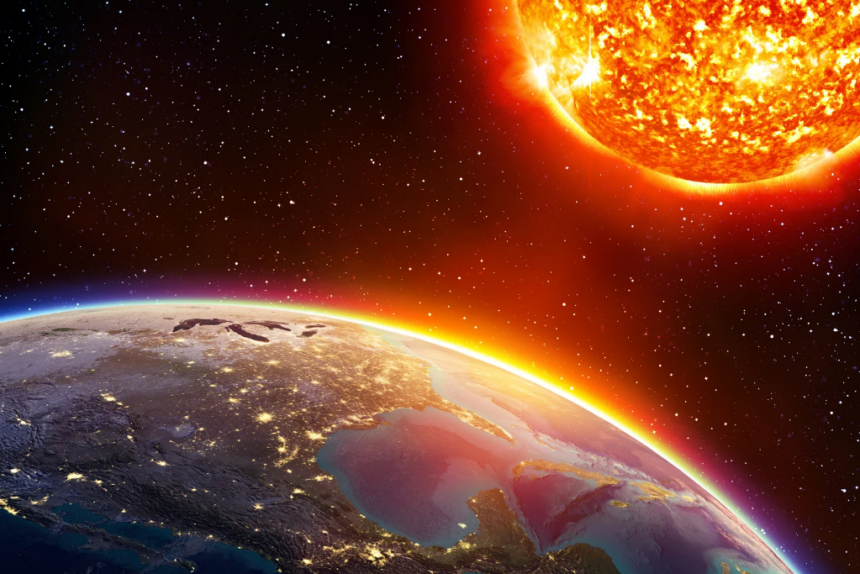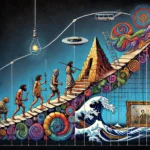On Gaia, one of the theories circulating among certain sectors of the population is that climate change is not the result of human activity, but of natural processes intrinsic to the planet. They argue that Gaia has gone through periods of glaciation and warming in the past, long before humans appeared, proving that these changes are cyclical and inevitable.
It is important to distinguish between natural climate cycles and civilisation-driven disturbances.
The natural change argument
Those who advocate this theory often point out that climate cycles, such as ice ages and interglacial periods, are influenced by such factors as:
- Orbital variations: Changes in Gaia’s inclination and orbit relative to the sun
- Solar activity: Fluctuations in the radiation emitted by the sun
- Massive volcanic eruptions: Which can temporarily alter the atmosphere and the global climate.
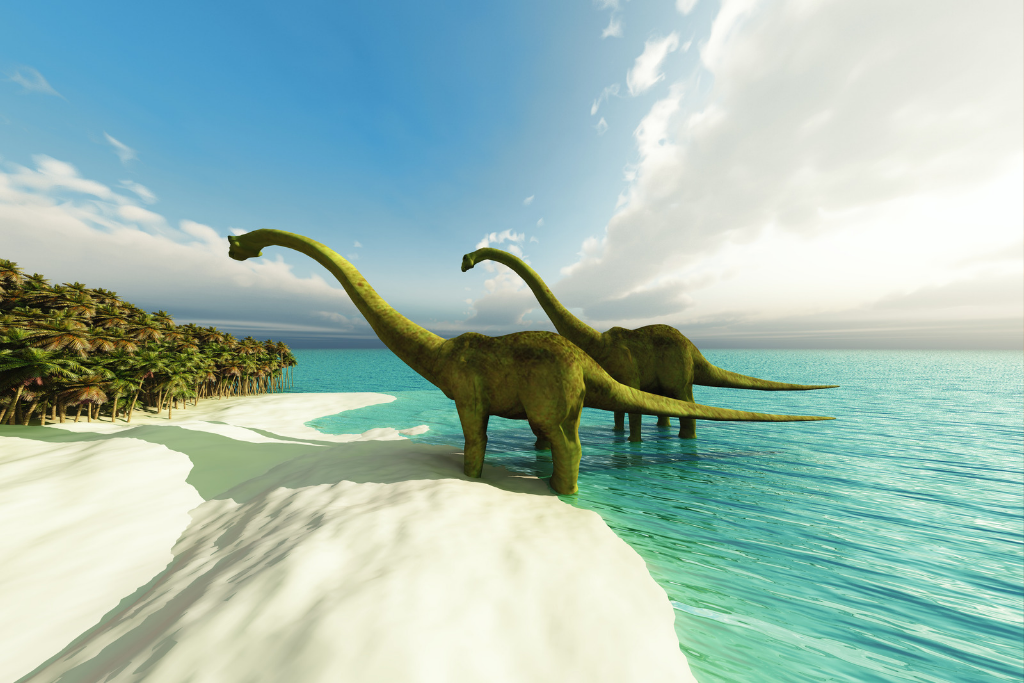
These phenomena have undoubtedly shaped Gaia’s climate over millions of years. However, from an Ekurian perspective, there are significant gaps in this view when analysing the current context.
Ekurian Perspective: Differentiating natural processes from human impacts
As Ekurians, we have studied numerous inhabited worlds at different stages of development. Through this experience, we have learned to distinguish between natural climate cycles and civilisation-driven alterations. In the case of Gaia, the available data strongly suggests that recent climate changes are a direct consequence of human activity.
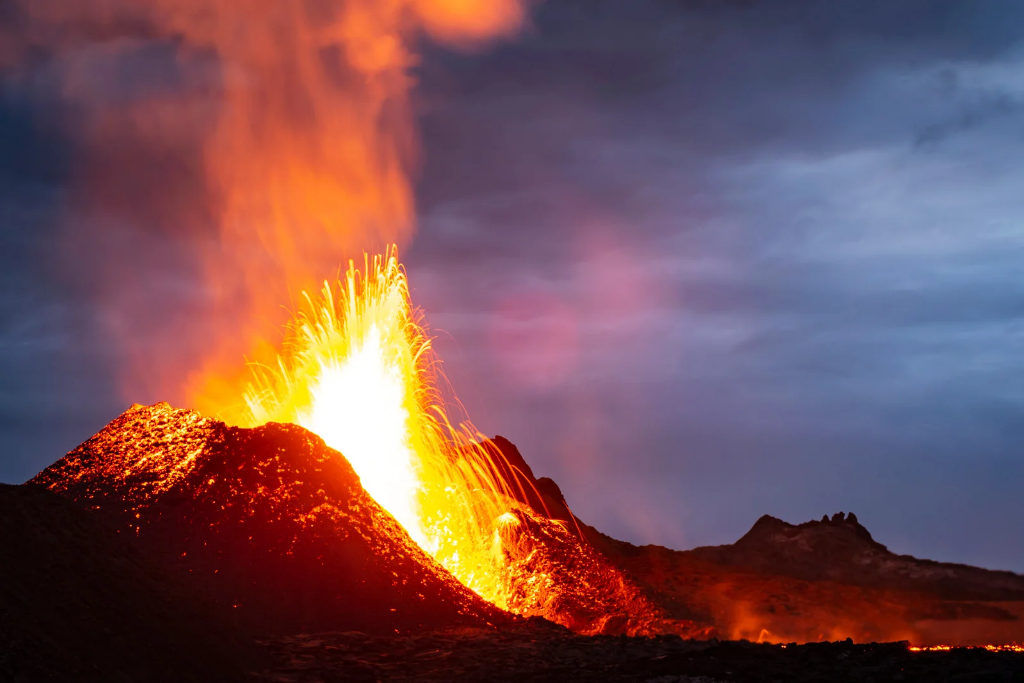
Why today’s climate change is different
- Speed of change:
Natural cycles of warming and cooling typically occur on scales of thousands or millions of years. However, the current warming is occurring in just a couple of centuries, a pace unprecedented in the planet’s history.
- Greenhouse gas concentrations:
Emissions of carbon dioxide, methane and other gases have soared since the Industrial Revolution due to the use of fossil fuels, deforestation and intensive agriculture.
Geological and atmospheric records show that these concentrations are unprecedented in at least 800,000 years.
- Alteration patterns:
The observed disturbances, such as glacier melt, sea level rise and temperature extremes, are in close agreement with projections from climate models based on human emissions.
The Importance of Human Responsibility
From our perspective, attributing climate change solely to natural processes may be an attractive argument, as it absolves humans of responsibility and thus the need to act. However, ignoring scientific evidence only delays the implementation of solutions that are critical for Gaia’s survival.
Facing the truth, however uncomfortable it may be, is the first step towards a solution.
Parallels to Other Worlds
On some planets studied by the Ekurians, civilisations also faced climate changes caused by their own activity. Those who accepted their responsibility and took corrective action were able to stabilise their ecosystems. Conversely, those that ignored the signs perished or were forced to abandon their world.
A balanced approach: Nature and humanity
While it is undeniable that Gaia has natural climate cycles, the interaction between these cycles and human activities is amplifying and accelerating the effects of climate change.
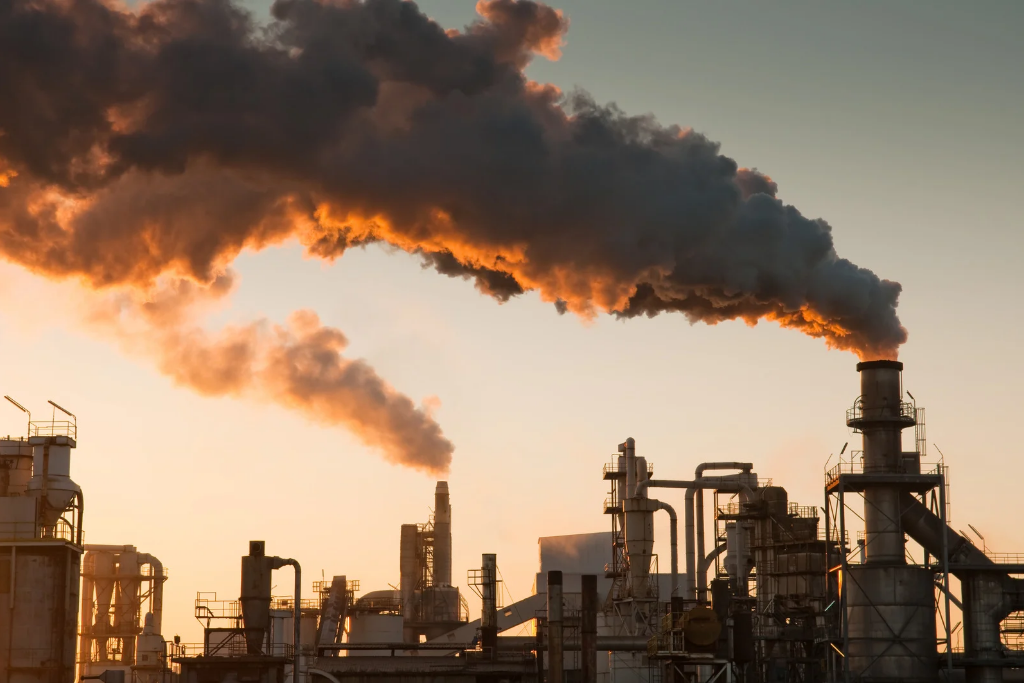
Tips for Gaia:
Take the long view: Humans tend to focus on immediate solutions, but tackling climate change requires planning for future generations.
Accepting duality: Recognising that both natural processes and human actions are shaping climate is essential to designing effective strategies.
Take responsibility: Regardless of the role played by natural cycles, humanity has the power to mitigate its own negative impacts, which can make a big difference to the future of the planet.
Conclusion: Science, not denial
From our experience as Ekurians, we know that facing the truth, however uncomfortable, is the first step towards a solution. Gaian science itself has shown conclusively that human activity is exacerbating climate change, although this does not negate the existence of natural cycles.
The key is to recognise the shared responsibility of nature and humanity, and to act together to ensure a sustainable future. Ignoring the evidence or attributing everything to natural causes is a luxury that Gaia cannot afford.
Will this generation of Gaians be able to assume their role in the preservation of their world? From my perspective as an ekurian, the answer depends on how willing they are to face their own reflection in the mirror of time and change.


